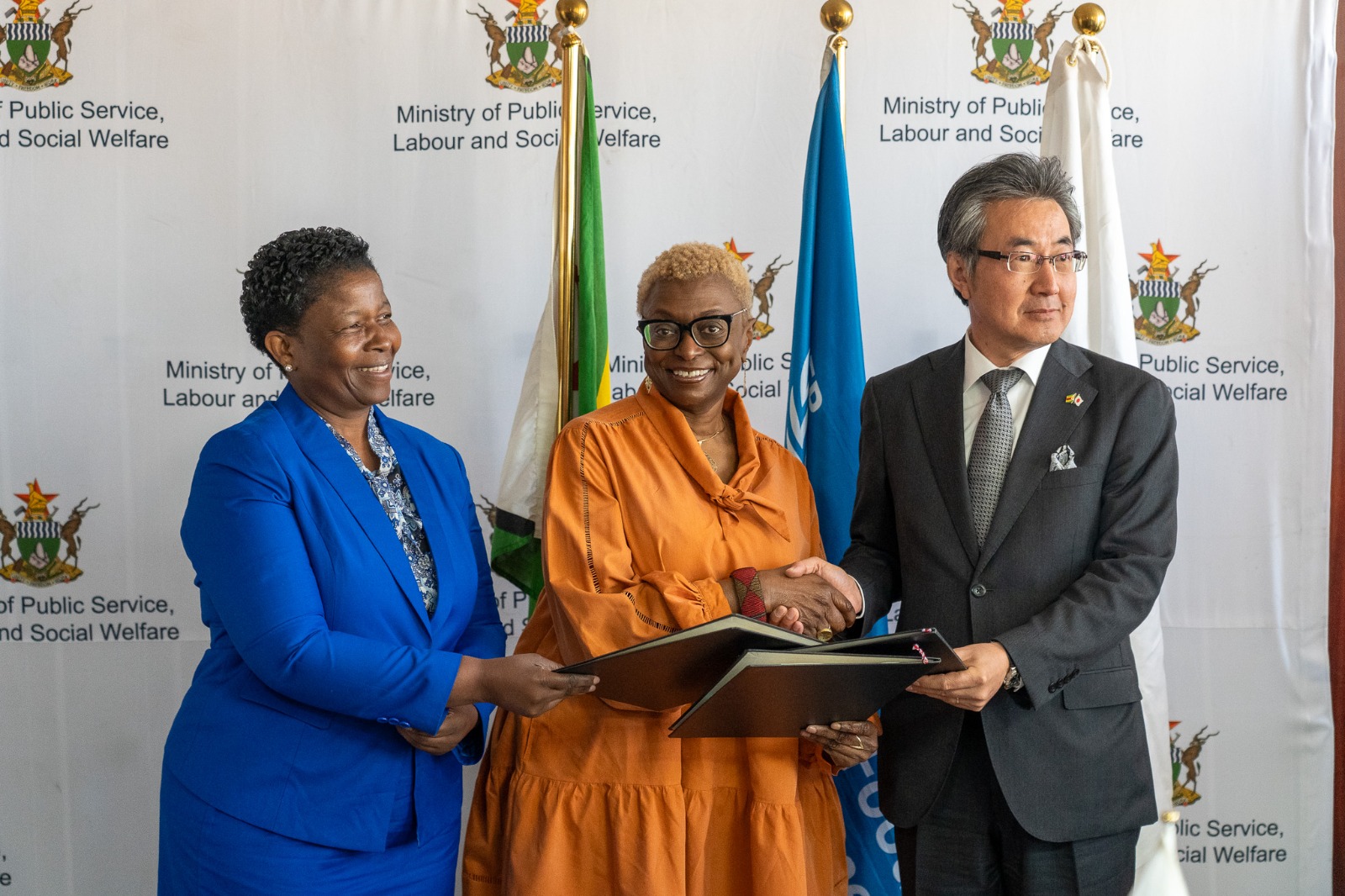Japan has applauded World Food Programme (WFP) for its tireless efforts in alleviating hunger in Zimbabwe, as the two parties signed a new US$1.3 million food assistance project targeting 32,000 vulnerable people across the country.
Speaking at the signing ceremony in Harare, Japan’s Ambassador to Zimbabwe, Shinichi Yamanaka, expressed deep gratitude to WFP and the Government of Zimbabwe for their unwavering dedication to supporting food-insecure communities.
“First and foremost, I would like to extend my deepest gratitude to WFP, in cooperation with the Government of Zimbabwe, for their tireless efforts and unwavering dedication to support vulnerable communities,” said Ambassador Yamanaka.
The newly signed project, titled “Providing Unconditional Humanitarian Food Transfers to Food Insecure People in Targeted Areas,” aims to deliver essential food items during the 2024/2025 lean season, a period of heightened hunger due to climate shocks and economic challenges.
Beneficiaries will receive food baskets containing maize, millet, sorghum, pulses, and vegetable oil.
“On behalf of WFP, I wish to express our heartfelt gratitude to the people and Government of Japan for this timely contribution of ¥200 million, equivalent to over USD 1.3 million which will support WFP’s Lean Season Assistance programme in Zimbabwe.
“This funding will allow us to reach 32,000 vulnerable people with critical food assistance during a period when many families are struggling to meet their basic needs.” said WFP country director, Barbara Ckemence.
She also said that the lean season remains the most difficult time for low-income and rural households, as food stocks dwindle, families are forced to make impossible choices like reducing meals or selling off key assets.
“This contribution will help us prevent those Today’s contribution is more than a handout, it is a hand extended in partnership,” she added.
Japan’s contribution comes at a critical time as Zimbabwe grapples with the effects of prolonged drought, rising food prices, and broader global crises.
The Ambassador reiterated that this humanitarian support reflects Japan’s solidarity with the people of Zimbabwe and its commitment to global food security.
“Our assistance today comes in response to the growing food insecurity affecting communities due to a combination of global climate changes and rising food prices.
” Japan stands in solidarity with Zimbabwe,” he stated.
This new US$1.3 million pledge adds to Japan’s consistent support to Zimbabwe’s humanitarian and development needs over the years. Since 2019, Japan has contributed US$11.4 million to WFP operations in Zimbabwe, reaching approximately 216,000 vulnerable people.
In 2024, as Zimbabwe endured an El Niño-induced drought, Japan provided US$2.8 million in food aid, reaching 66,000 people, and also donated 6,000 metric tonnes of fertilizer to boost food production for 100,000 smallholder farmers.
In November 2024, Japan committed US$5 million to another WFP-led project titled “Livelihoods Support for Smallholder Farmers through Enhancing Resilience to Climate Change and Sustainable Agriculture.”
The initiative is said to be designed to empower farmers, promote sustainable agriculture, and reduce communities’ vulnerability to climate-related shocks.
“This ongoing project aims to empower smallholder farmers, promote economic growth, and address food security challenges in Zimbabwe,” added Ambassador Yamanaka.
Japan sees its support to WFP and Zimbabwe as not only humanitarian but also diplomatic. The Ambassador emphasized that the food assistance is a symbol of goodwill and a means to further strengthen the enduring friendship between the two nations.







